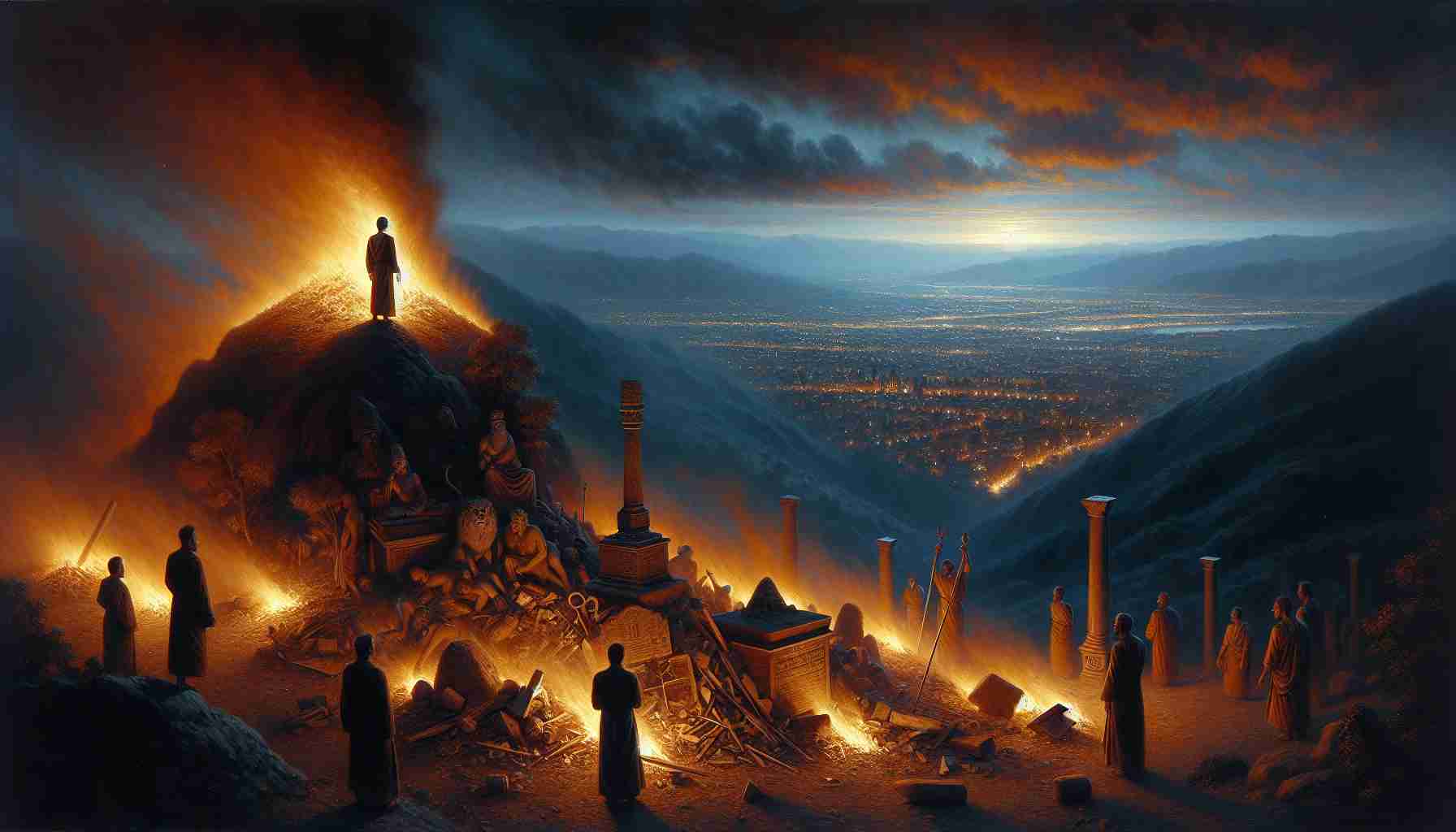Episode 3: Josiah and the Fire of Judgment- 2 Kings 23:4–20


Repentance without action is just emotion.
And Josiah didn’t stop at weeping.
He had heard the scroll.
He had seen the nation’s response.
Now he turned his eyes toward the high places.
They had stood for generations.
Stone altars on every hill.
Asherah poles at every crossroads.
Sacred groves in the shadows of the city.
Built by kings.
Visited by prophets of Baal.
Protected by the silence of the priests.
These weren’t just mistakes.
They were systems.
Embedded into the culture.
Passed down from father to son like heirlooms.
And Josiah meant to tear them all out—by fire.
He began in Jerusalem.
He ordered every vessel made for Baal and Asherah removed from the Temple.
Not stored. Not hidden.
Burned.
In the fields of Kidron, the smoke rose.
Then he turned to the idolatrous priests—men who had led the people into pagan worship, fed lies to kings, and desecrated the sacred.
They were removed, humiliated, disqualified.
The altars they had used were shattered.
Josiah ground the images to powder.
He tore down the Asherah poles.
He scattered the ashes of false gods over the graves of their own worshipers.
And the people watched.
He went from city to city.
Hill to hill.
He defiled Topheth—the Valley of Hinnom—where children had once been burned alive as offerings to Molech.
He desecrated it so thoroughly it would never be used again.
That valley would later be called Gehenna—a word Jesus would use to describe hell.
Josiah turned it into a graveyard for idols.
He broke down the altars Solomon had built for the gods of his foreign wives—shrines that had survived three hundred years.
He tore down sacred pillars.
He stripped away shrines.
He pulled down the memories of kings long dead—men no one dared criticize.
Josiah didn't care whose name was attached to the altar.
If it stood in defiance of God—it came down.
And then came the bones.
At one high place, Josiah dug up the tombs of false priests—men long dead, honored by generations—and burned their bones on their own altars.
It wasn’t just desecration.
It was defilement.
Once bones touched the altar, it could never be used again.
He turned sacred spaces into ash fields.
Places that had once drawn crowds were now marked by smoke and dust.
And still… not everyone rejoiced.
There were people who had worshiped at those shrines.
Who had offered incense to the stars.
Who had found comfort in Asherah and Baal.
They had pledged themselves to the Lord when the scroll was read.
But now they watched their favorite rituals reduced to ash.
Not all obedience is joyful.
Not all loyalty is pure.
Josiah’s faith was violent now.
Not because he hated the people—
But because he knew what happened when the warnings are ignored.
He wasn’t just cleansing the land.
He was trying to save it from judgment.
And it wouldn’t be enough.